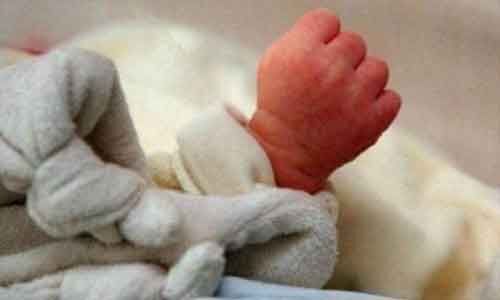- Home
- Medical news & Guidelines
- Anesthesiology
- Cardiology and CTVS
- Critical Care
- Dentistry
- Dermatology
- Diabetes and Endocrinology
- ENT
- Gastroenterology
- Medicine
- Nephrology
- Neurology
- Obstretics-Gynaecology
- Oncology
- Ophthalmology
- Orthopaedics
- Pediatrics-Neonatology
- Psychiatry
- Pulmonology
- Radiology
- Surgery
- Urology
- Laboratory Medicine
- Diet
- Nursing
- Paramedical
- Physiotherapy
- Health news
- Fact Check
- Bone Health Fact Check
- Brain Health Fact Check
- Cancer Related Fact Check
- Child Care Fact Check
- Dental and oral health fact check
- Diabetes and metabolic health fact check
- Diet and Nutrition Fact Check
- Eye and ENT Care Fact Check
- Fitness fact check
- Gut health fact check
- Heart health fact check
- Kidney health fact check
- Medical education fact check
- Men's health fact check
- Respiratory fact check
- Skin and hair care fact check
- Vaccine and Immunization fact check
- Women's health fact check
- AYUSH
- State News
- Andaman and Nicobar Islands
- Andhra Pradesh
- Arunachal Pradesh
- Assam
- Bihar
- Chandigarh
- Chattisgarh
- Dadra and Nagar Haveli
- Daman and Diu
- Delhi
- Goa
- Gujarat
- Haryana
- Himachal Pradesh
- Jammu & Kashmir
- Jharkhand
- Karnataka
- Kerala
- Ladakh
- Lakshadweep
- Madhya Pradesh
- Maharashtra
- Manipur
- Meghalaya
- Mizoram
- Nagaland
- Odisha
- Puducherry
- Punjab
- Rajasthan
- Sikkim
- Tamil Nadu
- Telangana
- Tripura
- Uttar Pradesh
- Uttrakhand
- West Bengal
- Medical Education
- Industry
ESC issues guidance for patients of congenital heart disease

Sophia Antipolis, France - More than 90% of babies born with heart defects survive into adulthood. As a result, there are now more adults living with congenital heart disease than children. These adults have a chronic, lifelong condition and the European Society of Cardiology (ESC) has produced advice to give the best chance of a normal life. The guidelines are published online today in European Heart Journal, and on the ESC website.
Congenital heart disease refers to any structural defect of the heart and/or great vessels (those directly connected to the heart) present at birth. Congenital heart disease affects all aspects of life, including physical and mental health, socialising, and work. Most patients are unable to exercise at the same level as their peers which, along with the awareness of having a chronic condition, affects mental wellbeing.
"Having a congenital heart disease, with a need for long-term follow-up and treatment, can also have an impact on social life, limit employment options and make it difficult to get insurance," said Professor Helmut Baumgartner, Chairperson of the guidelines Task Force and head of Adult Congenital and Valvular Heart Disease at the University Hospital of Münster, Germany. "Guiding and supporting patients in all of these processes is an inherent part of their care."
All adults with congenital heart disease should have at least one appointment at a specialist centre to determine how often they need to be seen. Teams at these centres should include specialist nurses, psychologists and social workers given that anxiety and depression are common concerns.
Pregnancy is contraindicated in women with certain conditions such high blood pressure in the arteries of the lungs. "Pre-conception counselling is recommended for women and men to discuss the risk of the defect in offspring and the option of foetal screening," said Professor Julie De Backer, Chairperson of the guidelines Task Force and cardiologist and clinical geneticist at Ghent University Hospital, Belgium.
Concerning sports, recommendations are provided for each condition. Professor De Backer said: "All adults with congenital heart disease should be encouraged to exercise, taking into account the nature of the underlying defect and their own abilities."
The guidelines state when and how to diagnose complications. This includes proactively monitoring for arrhythmias, cardiac imaging and blood tests to detect problems with heart function.
Detailed recommendations are provided on how and when to treat complications. Arrhythmias are an important cause of sickness and death and the guidelines stress the importance of correct and timely referral to a specialised treatment centre. They also list when particular treatments should be considered such as ablation (a procedure to destroy heart tissue and stop faulty electrical signals) and device implantation.
For several defects, there are new recommendations for catheter-based treatment. "Catheter-based treatment should be performed by specialists in adult congenital heart disease working within a multidisciplinary team," said Professor Baumgartner.
Hina Zahid Joined Medical Dialogue in 2017 with a passion to work as a Reporter. She coordinates with various national and international journals and association and covers all the stories related to Medical guidelines, Medical Journals, rare medical surgeries as well as all the updates in the medical field. Email: editorial@medicaldialogues.in. Contact no. 011-43720751
Dr Kamal Kant Kohli-MBBS, DTCD- a chest specialist with more than 30 years of practice and a flair for writing clinical articles, Dr Kamal Kant Kohli joined Medical Dialogues as a Chief Editor of Medical News. Besides writing articles, as an editor, he proofreads and verifies all the medical content published on Medical Dialogues including those coming from journals, studies,medical conferences,guidelines etc. Email: drkohli@medicaldialogues.in. Contact no. 011-43720751


